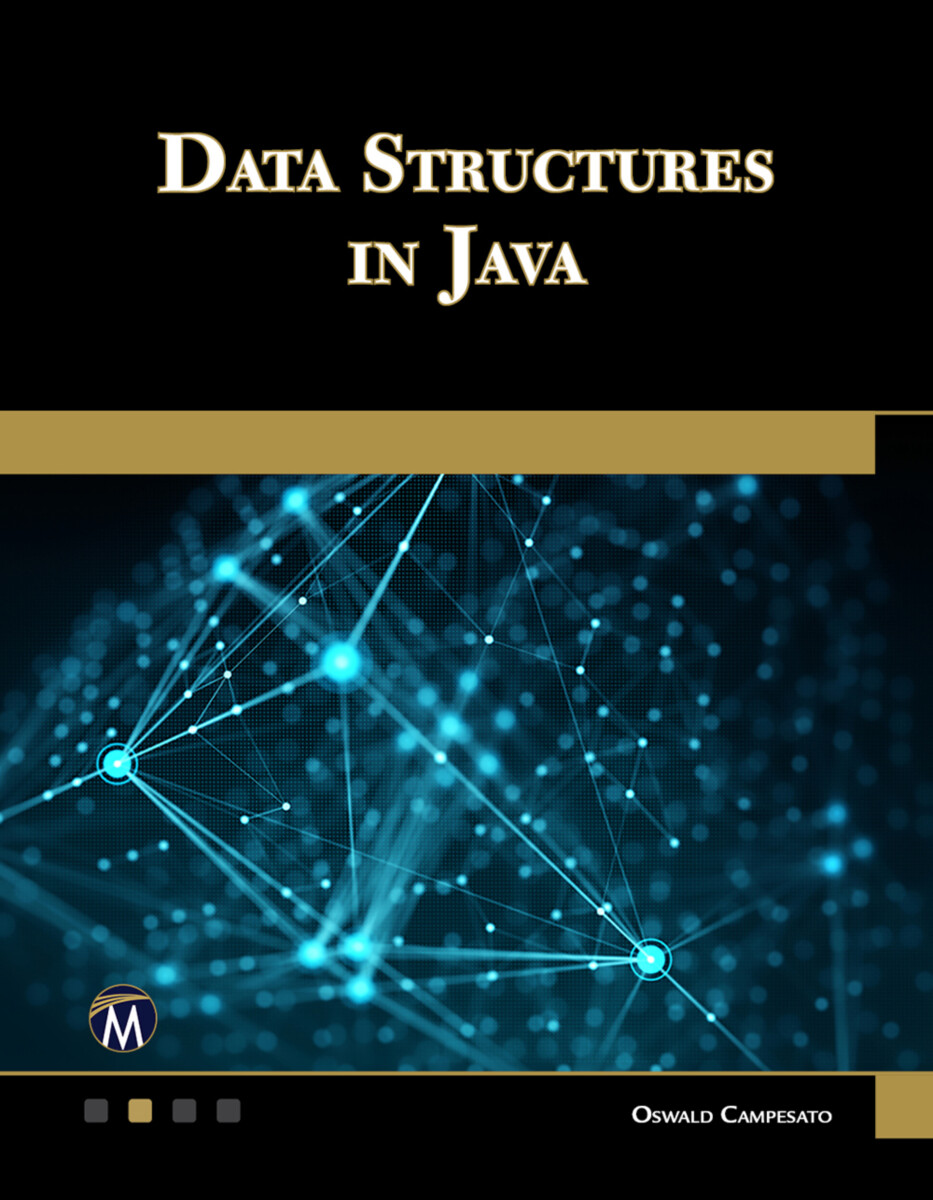Data Structures in Java
- Publisher
Mercury Learning and Information - Published
1st May 2023 - ISBN 9781683929550
- Language English
- Pages 232 pp.
- Size 7" x 9"
E-books are now distributed via VitalSource
VitalSource offer a more seamless way to access the ebook, and add some great new features including text-to-voice. You own your ebook for life, it is simply hosted on the vendor website, working much like Kindle and Nook. Click here to see more detailed information on this process.
- Publisher
Mercury Learning and Information - Published
10th May 2023 - ISBN 9781683929536
- Language English
- Pages 232 pp.
- Size 7" x 9"
Library E-Books
We are signed up with aggregators who resell networkable e-book editions of our titles to academic libraries. These editions, priced at par with simultaneous hardcover editions of our titles, are not available direct from Stylus.
These aggregators offer a variety of plans to libraries, such as simultaneous access by multiple library patrons, and access to portions of titles at a fraction of list price under what is commonly referred to as a "patron-driven demand" model.
- Publisher
Mercury Learning and Information - Published
10th May 2023 - ISBN 9781683929543
- Language English
- Pages 232 pp.
- Size 7" x 9"
This book is a fast-paced introduction to using data structures with Java. Numerous code samples and listings are included to support myriad topics. The first chapter contains a quick introduction to Java, along with Java code samples to check for leap years, find divisors of a number, and work with arrays of strings. The second chapter introduces recursion and uses
code samples to check if a positive number is prime, to find the prime divisors of a positive integer, to calculate the GCD (greatest common divisor) and LCM (lowest common multiple) of a pair of positive integers. The third chapter contains Java code samples involving strings and arrays, such as finding binary substrings of a number, checking if strings contain unique characters, counting bits in a range of numbers, and how to compute XOR without using the XOR function. Chapters 4 through 6 include Java code samples involving search algorithms, concepts in linked lists, and tasks involving linked lists. Finally, Chapter 7 discusses data structures called queues and stacks, along with additional Java code samples.
FEATURES:
- Extensive topics, code samples, and scripts related to data structures
- Covers strings, arrays, queues, and stacks, linked lists, computing the XOR function, checking for unique characters, and more
- Includes companion files with code samples from the book (available for downloading from the publisher)
1: Introduction to Java
2: Recursion and Combinatorics
3: Strings and Arrays
4: Search and Sort Algorithms
5: Linked Lists (1)
6: Linked Lists (2)
7: Queues and Stacks
Index
Oswald Campesato
Oswald Campesato specializes in Deep Learning, Python, Data Science, and generative AI. He is the author/co-author of over forty-five books including Google Gemini for Python, Large Language Models, and GPT-4 for Developers (all Mercury Learning).


